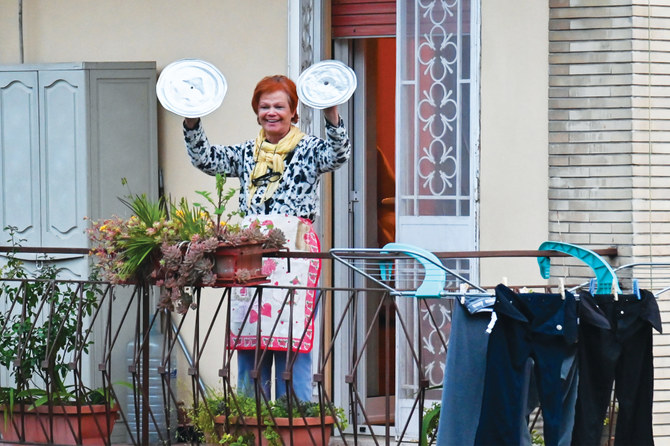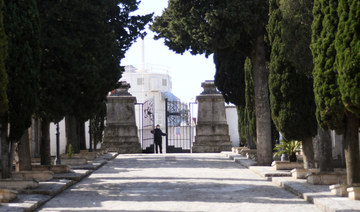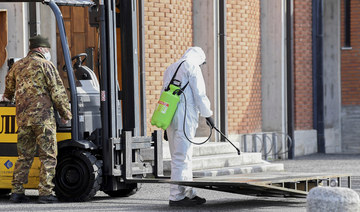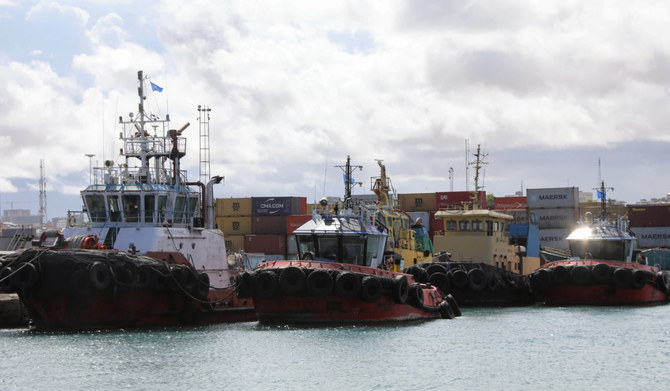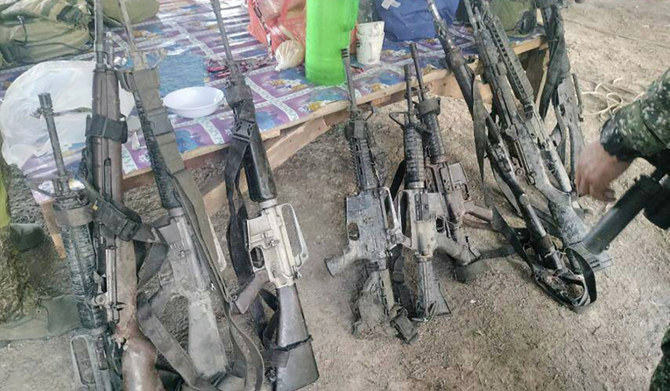DUBAI: The streets are quiet. The nightly shows on the balcony and from the windows in Italian cities have dissipated.
They have been replaced by the eerie, constant sound of police cars patrolling neighborhoods to ensure that everyone stays home and stays safe. The novelty of being locked in one’s home is no more.
It has now been exactly three weeks since Italians were placed under strict lockdown. Even so, there is still a stream of comedians who are making fun of the situation on social media and YouTube, providing ways to inject humor into an otherwise dark and increasingly tragic situation.
A week into lockdown, actor Paolo Camilli posted “Agenda of a Quarantine” on his Instagram, in which he opens his packed agenda of digital meetings: Work meetings on Zoom, Flashmob on the balcony, Pilates and Zumba classes on Microsoft Teams, dinner and aperitifs on Skype, and movie viewings to keep him busy for an entire week as he tries to find time to meet the person on the other end of the phone for a video call.
“I really believe this quarantine is a time to spend with oneself,” he said before recounting his busy schedule as if the seemingly apocalyptic moment we are all currently facing had not happened.
FASTFACTS
- Italian literature full of examples of humor’s use as form of resilience.
- Roman dialect poetry of Trilussa and Belli highlight humor’s place in Italian culture.
- Playwright Eduardo De Filippo produced masterful tragicomic works in 20th century.
- Commedia all’Italiana films merged satire, social critique in post-WWII era.
Having difficulty finding time in his overflowing agenda, Camilli added with a smile: “Listen, should we just try and schedule this (interview) for the next end of the world? That way we can speak calmly without too many distractions?”
The message: Will quarantine actually change how we live our lives? No, we keep going on in just the same way.
Living life to the fullest has long been the Italian motto. But now the mood has changed, and the novelty of spending so much time alone has worn off. For many, dread has crept in.
“On one of the first days of the lockdown, everyone in Rome went out on their balconies and sang the Italian national anthem and I got tears in my eyes,” said Carmen Scarpati, a resident of the capital.
“Now the tune is different. We’ve done the singing and dancing on balconies to support one another, and today people are worried about bills they need to pay and about putting enough food on the table.”
There is quiet acceptance that this state will go on for some time. “The positive side? More families are spending time together, whether in the same residence or via Zoom or other social media apps,” said Scarpati, explaining how for birthday parties for her son’s friends, the families still get together on Zoom to celebrate.
“We’re all in this together and we know this, but the notion of togetherness now comes from passing time with your close friends and families,” she said.
Scarpati said all the children in her son’s school were told to make rainbows a few days ago with the words “Andrà tutto bene” (Everything will be OK).
The artworks were hung from the windows and outside on the balconies, endowing the surroundings with child visions of hope.
“Humor, satire and irony are very important to Italian culture, and Italians have always done their best to use humor to help them cope and be resilient as they deal with difficult situations,” said Berenice Cocciolillo, director of web communications and a professor at John Cabot University in Rome.

A week into lockdown, actor Paolo Camilli posted his packed schedule of meetings on his Instagram.
In Italian literature, there are great examples of humor being used as forms of resilience. According to Cocciolillo, from the Roman dialect poetry of Trilussa and Belli to the famous Neapolitan playwright Eduardo De Filippo, whose works are masterful fusions of the comic and the tragic, there have been constant examples of the importance of humor in Italian culture throughout the course of the last century.
Another one is the Commedia all’Italiana film genre of the late 1950s through the 1970s, which united tragedy and comedy, satire and social critique during a challenging time in Italy — post-World War II and during the 1970s, when the country was on the brink of revolution due to waves of political terrorism from both far-right and far-left factions.
“Italians have always had a great love for comic actors such as Totò, Alberto Sordi, Paolo Villaggio, Carlo Verdone and Roberto Benigni,” said Cocciolillo.

Berenice Cocciolillo
“The COVID-19 pandemic is no exception. Humor is still in the air, as the numerous funny videos and memes being shared on social media show.”
But humor depends on people’s personal situations. As the streets have emptied, grocery stores enact stringent measures upon entry, family members who live in different residences are barred from seeing each other, and the unemployment rate has increased, togetherness now takes the form of other ways of bonding.
“A big part of our culture is about teasing people and situations,” said Francesco Faré, account director of Brandcot, a communications agency in Milan.
“We’ve always poked fun at our government and politicians. It’s how we survive certain situations,” he said from his balcony in Milan during a Zoom call.
“We now have massive production of food. People are cooking all the time. What’s more is that the supermarkets have run out of yeast to make baked goods. We’re all having to be very creative with our cooking,” he added with a chuckle.
Opinion
This section contains relevant reference points, placed in (Opinion field)
“We laugh, we make fun of the situation and of each other, and we cook, cook and cook. And even after the quarantine ends, we’ll still make fun of the situation because we’ll be all fat.”
Not everyone, however, has access to storing the same amount of food. “Some people can’t afford to stock up on food for several weeks; many have to still shop day by day,” said Scarpati.
“We’re learning once again to be grateful for the small things, for the gifts of each day and for our connection to each other.”
While the initial festivities on the balconies are not as much as before, and the humor does not move people as quickly into explosions of laughter, the resilience now lies with one’s values.
“We’re now all going back to our cultural values. Regardless of a difference in generations, we believe in community, in togetherness, even if we’re physically apart,” said Faré.
“Whether we’re with our families or alone, we Italians are used to going out for dinner nearly every night. That hasn’t changed. No matter what you have, sharing a meal and a laugh is more important now than ever.”





